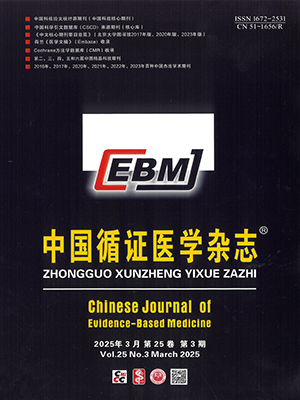| 1. |
Tschentscher M, Niederseer D, Niebauer J. Health benefits of Nordic walking: a systematic review. Am J Prev Med, 2013, 44(1): 76-84.
|
| 2. |
Girold S, Rousseau J, Le Gal M, et al. Nordic walking versus walking without poles for rehabilitation with cardiovascular disease: Randomized controlled trial. Ann Phys Rehabil Med, 2017, 60(4): 223-229.
|
| 3. |
Morgan RL, Thayer KA, Santesso N, et al. Evaluation of the risk of bias in non-randomized studies of interventions (ROBINS-I) and the’target experiment’concept in studies of exposures: Rationale and preliminary instrument development. Environ Int, 2018, 120: 382-387.
|
| 4. |
Latosik E, Zubrzycki IZ, Ossowski Z, et al. Physiological Responses Associated with Nordic-walking training in systolic hypertensive postmenopausal women. J Hum Kinet, 2014, 43: 185-190.
|
| 5. |
Kawamoto R, Kohara K, Katoh T, et al. Brachial-ankle pulse wave velocity is a predictor of walking distance in community-dwelling adults. Aging Clin Exp Res, 2015, 27(2): 187-193.
|
| 6. |
Vehí C, Falces C, Sarlat MÀ, et al. Nordic walking for cardiovascular prevention in patients with ischemic heart disease or metabolic syndrome. Med Clin (Barc), 2016, 147(12): 537-539.
|
| 7. |
Collins EG, O’connell S, McBurney C, et al. Comparison of walking with poles and traditional walking for peripheral arterial disease rehabilitation. J Cardiopulm Rehabil Prev, 2012, 32(4): 210-218.
|
| 8. |
Piotrowicz E, Buchner T, Piotrowski W, et al. Influence of home-based telemonitored Nordic walking training on autonomic nervous system balance in heart failure patients. Arch Med Sci, 2015, 11(6): 1205-1212.
|
| 9. |
Rybicki JR, Leszczyńska-Bolewska BM, Grochulska WE, et al. Oxygen uptake during Nordic walking training in patients rehabilitated after coronary events. Kardiol Pol, 2015, 73(1): 17-23.
|
| 10. |
Sentinelli F, La Cava V, Serpe R, et al. Positive effects of Nordic Walking on anthropometric and metabolic variables in women with type 2 diabetes mellitus. Sci Sports, 2015, 30(1): 25-32.
|
| 11. |
Hagner-Derengowska M, Kałużny K, Hagner W, et al. The influence of a ten-week Nordic walking training-rehabilitation program on the level of lipids in blood in overweight and obese postmenopausal women. J Phys Ther Sci, 2015, 27(10): 3039-3044.
|
| 12. |
Figard-Fabre H, Fabre N, Leonardi A, et al. Efficacy of Nordic walking in obesity management. Int J Sports Med, 2011, 32(6): 407-414.
|
| 13. |
Skórkowska-Telichowska K, Kropielnicka K, Bulińska K, et al. Nordic walking in the second half of life. Aging Clin Exp Res, 2016, 28(6): 1035-1046.
|
| 14. |
Bombieri F, Schena F, Pellegrini B, et al. Walking on four limbs: A systematic review of Nordic Walking in Parkinson disease. Parkinsonism Relat Disord, 2017, 38: 8-12.
|
| 15. |
Fritschi JO, Brown WJ, Laukkanen R, et al. The effects of pole walking on health in adults: a systematic review. Scand J Med Sci Sports, 2012, 22(5): e70-e78.
|
| 16. |
Keast ML, Slovinec D’Angelo ME, Nelson CR, et al. Randomized trial of Nordic walking in patients with moderate to severe heart failure. Can J Cardiol, 2013, 29(11): 1470-1476.
|
| 17. |
Jastrzebski D, Ochman M, Ziora D, et al. Pulmonary rehabilitation in patients referred for lung transplantation. Adv Exp Med Biol, 2013, 755: 19-25.
|




